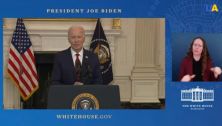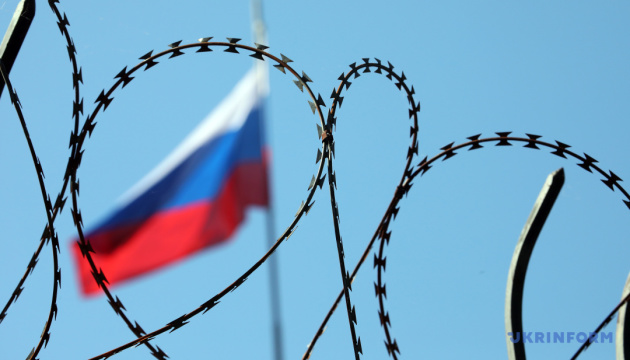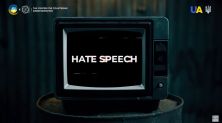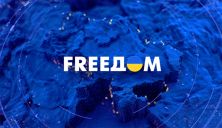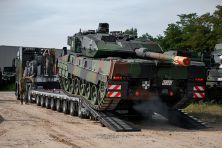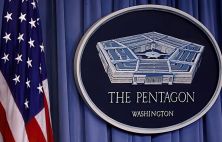Today, all the world’s attention is focused on a series of security conferences taking place in Europe. The journalist of the UA TV channel Oleksiy Matsuka in the special broadcast “Ukraine in fact” collected reactions and forecasts, as well as opinions on the security situation in Europe and on Moscow’s goals through ultimatums on non-expansion of NATO.
As they write in Deutsche Welle, “the president of Russia has received a stage for his imperious fantasies, could there be something more desirable for an autocrat?”
“The coming week can be safely called the “festival of Russia”. Several conferences and meetings will be held in Geneva, Brussels, Vienna and Brest at once with the sole purpose of keeping Putin in good spirits and keeping him from introducing regular Russian troops into Ukraine, ”writes DW columnist Bernd Riegert.
Also, according to him, the Russian president should not expect serious decisions during the “festival” week.
“All the same warnings will be voiced that have been voiced for several weeks since Russia concentrated its troops on the border with Ukraine. Neither the United States nor other NATO countries will use their own armed forces to defend Ukraine” – Bernd Riegert shared his opinion.
The observer believes that Putin will fuel conflicts in and around Belarus, Ukraine, Georgia, Moldova and Armenia in order to prevent these countries from taking further steps towards the West.
“From a military point of view, the West, which has not even been able to organize its own withdrawal from Afghanistan, seems to Putin extremely indecisive” – Rigert writes.
In addition, he notes that Putin, due to internal political reasons, cannot afford a full-scale war and is now primarily engaged in strengthening his influence in Kazakhstan.
“So this will not be the last “festival ”week of the Kremlin. But it is valuable in itself: if you talk to each other, you don’t shoot at each other” – the columnist writes.
It is clear that transatlantic disunity and the lack of a strategy to counter Russia’s ultimatum jeopardize the security architecture of all of Europe. The West now has no choice but to create a strong united front, according to the think tank Carnegie Europe.
They write there that Putin’s actions are aimed at testing the United States, NATO and Europe.
“They are about reversing the post-Cold War era, reaffirming Russia’s military-political influence over Ukraine, Georgia and other countries in the region, which until 1989 were part of the USSR. They reflect a dangerous clash of geopolitical and historical realities” – said Carnegie Europe.
Putin’s threats are contained in two texts released in December. Both are like ultimatums. The first is called the United States-Russian Federation Security Assurance Treaty. The second is the “Agreement on Measures to Ensure the Security of the Russian Federation and the Member States of the NATO North Atlantic Treaty Organization.” Moscow’s goal in this case is to immediately obtain legal security guarantees from the United States and NATO.
“Russia and the United States undertake not to use the territories of other states to prepare a military attack on each other. Russia and the United States undertake to keep nuclear weapons only on their territories and not train the military of other countries to use them. The United States undertakes not to establish military bases on the territory of countries that were part of the USSR. NATO commits itself to abandoning further expansion to the East and not accepting Ukraine and other states that were part of the USSR. The member countries of the Alliance undertake to abandon military activities on the territory of Ukraine, as well as other countries of Eastern Europe, Transcaucasia and Central Asia. NATO undertakes to withdraw its forces and weapons from those member states that entered the bloc after May 27, 1997 (we are talking about the former member states of the Warsaw Pact)” – the texts say.
Both documents require NATO to not expand to the East. That is, we are talking about Ukraine and our partner country in the Eastern Partnership and the new Associated Trio – Georgia. Despite the fact that in 2008 in Bucharest at the NATO summit both Kiev and Tbilisi received guarantees that one day both countries will be able to join the Alliance, we receive such conflicting signals from Moscow. The Russian Foreign Ministry called the decision of the 2008 Bucharest summit “as contrary to the commitment of the leaders of all OSCE participating States” not to strengthen their security at the expense of the security of others. “But Putin accused NATO of “cheating”.
“Not a single inch to the East,” we were told in the 90s. So what? Cheated. They just cheated insolently. Five waves of NATO enlargement. And now, please: in Romania, in Poland, there are corresponding system” – he said.
“Moscow is lying that NATO is threatening Russia, that NATO is planning to deploy military infrastructure in Ukraine to fuel a conflict with Russia, that NATO has vowed post-Cold War not to accept Eastern European countries into its ranks, and that NATO has broken those promises. Each of these statements is false. NATO is a defensive alliance. NATO exists for defense, not attack. After the Cold War, NATO significantly reduced its conventional and nuclear forces because NATO no longer needed to maintain the same defensive position” – was the response of US Secretary of State Anthony Blinken.
Russia is demanding that the US and NATO sign treaties on the withdrawal of NATO forces stationed on the territory of allies in Central and Eastern Europe and to ban Ukraine from ever joining NATO. But this is unrealistic. Ukraine itself determines its own destiny, not Vladimir Putin.
“Moscow is trying to strengthen its sphere of influence in countries that were once under Soviet leadership and prevent them from realizing their democratic aspirations as fully sovereign, independent states” – Blinken said.
“Ukraine does not pose a threat to Russia. I think that, in any case, it is the idea of a democratic, stable Ukraine that is a challenge for Moscow. And therefore NATO will continue to support our partner, sovereign Ukraine, recognizing that Ukraine is a partner and not a NATO member” – NATO Secretary General Jens Stoltenberg sees the reasons for Putin’s aggressive policy.
The Kremlin’s demands on the White House and the West are a relic of the past. Ukrainian Foreign Minister Dmytro Kuleba wrote about this on Twitter.
Let’s call a spade a spade. Putin demands the U.S., NATO & the EU to accept Russia’s sphere of influence over sovereign neighboring states. But the Cold War is over, and so are spheres of influence. Putin’s demands are illegitimate and harmful to international peace and security.
— Dmytro Kuleba (@DmytroKuleba) January 9, 2022
“It’s time to call a spade a spade. Putin is demanding that the US, NATO and the EU recognize Russia’s sphere of influence, to which sovereign neighboring states belong. But the Cold War is long over, and with it the spheres of influence. Putin’s demands are inappropriate and threaten international peace and security” – the minister writes.
So, many international treaties, organizations, memorandums and agreements signed by the Kremlin prohibit annexation and occupation, support of the proxy groups “L/DPR”. But today Russia under the leadership of Putin is the main troublemaker in our region. And this must be stopped, of course, together.
Earlier, the Russian opposition politician, deputy of the State Duma of the Russian Federation (2007-2016) Ilya Ponomariov said that the Kremlin was not planning a full-scale invasion of Ukraine. Today, the main goal of Putin is Belarus.
Read also: Russia’s Military Escalation Against Ukraine (LIVE UPDATES)
